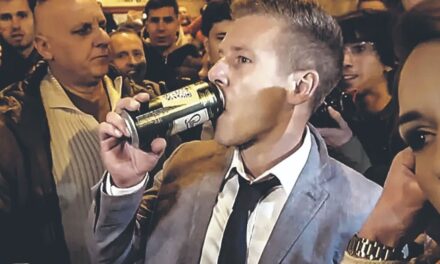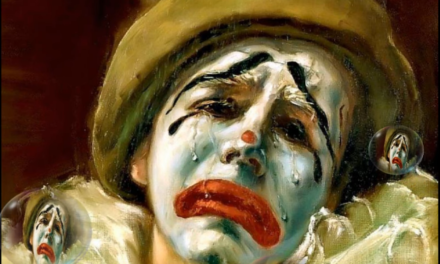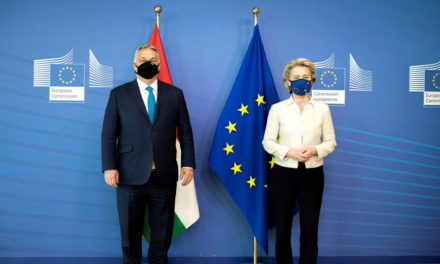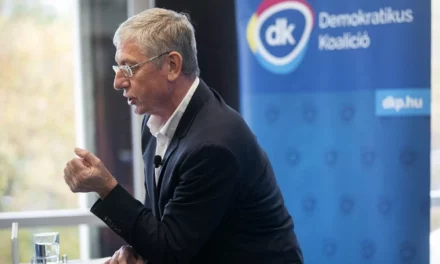We need leaders who can make both centers of the West great again.
Ronald Reagan won the presidential election in 1980 under severe international tensions and severely polarized and divided domestic political conditions, such as the situation in which the Republican candidate is now preparing in America. It is also needless to note that the mainstream media and public opinion tried to portray both American Republican politicians as talentless idiots, clowns, and incompetent quacks. And lo and behold, commemorative conferences are held today in Hungary and America about Ronald Reagan, who the liberal mainstream tried to ridicule in his time. And there are certainly many similarities between the end of the presidency of Jimmy Carter and Joe Biden.
The 1970s also brought uncertainty and hopelessness to the United States. The Soviet military industry was at its peak, the USA suffered humiliating diplomatic and military losses, and the withdrawal from Vietnam was followed by the Iranian hostage drama a few years later. The oil crisis brought inflation and unemployment, but Reagan had a date with fate, not Soros. He knew there was good and bad. He knew that the most important skill of a politician is to organize the majority with the truth.
Reagan both reversed the course of history and enabled his countrymen to lift America up through their own work and entrepreneurship. When he stepped down from his position as president, he was able to show almost unbelievable results. The Soviet Union began its withdrawal from Afghanistan, the Berlin Wall cracked, and the regime change process began east of the Iron Curtain. The peoples of Central Europe began to regain their independence one after the other,
and although the danger and existence of regional conflicts obviously remained, the danger of a world war was long gone.
Ronald Reagan was quite a unique personality. He worked as a lifeguard in his teens and throughout his life was proud to have saved 77 drowning people from the water. He entered the film industry at a young age and fought against communist oppression as a union leader in Hollywood at the time. In the 1950s, he toured the United States on behalf of a company as part of his job duties, he talked to thousands of people, he really knew and got to know his own people, and he maintained this relationship during his career as well, he was a populist of his time. And that is precisely why he managed to accomplish the aforementioned task, i.e. organizing the truth and the majority.
Obviously, there is also this commemorative conference because
we Hungarians like to remember the great American president, as Ronald Reagan was a good friend of the Hungarians.
We are grateful to him for the fact that Hungary was able to free itself from the almost deadly grip of the communist monster. He was really interested in our history and knew our recent past in detail. He also did a lot to change the image of Hungary in the United States. To a large extent, we can thank him for the fact that we changed from the falsely propagated "last minion" to a nation fighting for its freedom and insisting on its independence in the eyes of the Americans and the entire West.
His relationship with the Kádár regime was determined by our war of independence in 1956, and as a result, he evaluated Jimmy Carter's return of the Holy Crown to the communist Hungarian leadership in 1978 as a serious strategic error. For Reagan was fully aware of the mythical role of our national relic. He delivered the following speech three days after the return of the Holy Crown:
And now, according to the White House, the rightful owner of this crown, which conveys legitimacy and God's blessing to the Hungarians, is the godless communist government that serves the occupiers. In Tehran, we sold freedom that was not ours. We are now giving legitimacy that is not ours to an illegitimate government. Are we serious about human rights?
I believe that these profound words still have an amazing power today, and that Reagan sets an example of statesmanship for today's generations that we would do well to follow. We know that he was the Western leader who did the most to win the Cold War, but at the same time, he also stood up most decisively against military escalation and the heating up of the Cold War.
Reagan knew that the key to maintaining a secure world order was peace. Of course, make no mistake, Reagan never thought of peace as a sign of weakness or the absence of great power competition. According to his famous saying, peace is not the absence of conflict, but a peaceful way of dealing with conflict. He said this as an elected American president in 1982.
The legendary president of the Republicans was also perfectly aware that a total war between the nuclear powers must be avoided, as it would mean the end of human civilization. And unfortunately, the harsh reality hasn't changed since then. The superpowers have enough nuclear weapons to wipe humanity off the face of the Earth many times over. However, what has changed are the qualities of the leaders. Because
among the qualities of leaders today, sanity, realism and the moral compass that Ronald Reagan so often relied on are missing. Emmanuel Macron, Olaf Scholtz, Von der Leyen and Joe Biden are unable to assess the constricting limits of reality and the extent of the risk they have taken, but also on our behalf.
They only understand one thing: if they were to admit how bad things are going, they would have to take responsibility for the prolongation of the war, for the many hundreds of thousands of dead, for the destruction of European competitiveness and, of course, for the weakening of the diplomatic positions of the USA. They are terrified of it, and fear grips their hands on the steering wheel as our world rushes towards World War III.
Of course, strength is needed to create and maintain peace. As Reagan put it in his speech at the Republican presidential nominating convention in July 1980:
We know well that war does not come when the sons of liberty are strong, but precisely when they are weak.
And today, unfortunately, there are weak leaders in both Washington and Brussels. The hallmark and essence of President Reagan's foreign policy doctrine was "peace through strength". But what does this mean in practice? For example, with the Star Wars plan, the signing of the Intermediate-Range Nuclear Weapons Treaty, or the launch of the Strategic Defense Initiative, he cornered the Soviet leadership. At the same time, he negotiated personally with Gorbachev in order to keep the fear of nuclear clouds at bay.
As Prime Minister Viktor Orbán praised the former US president in 2011:
Yes, Ronald Reagan made the right choice, managed change wisely and kept the peace.
All of this required courage, patience, and wise insight - I might add. Also for credibility, so that the opponent believes that we are capable of showing strength.
Even today, these qualities are the most important, but unfortunately the leading politicians of the West are certainly lacking in all of them.
We are confident in the turn of the elections in Europe and America because we need leaders who can make both centers of the West great again, as it was in America under the presidency of Ronald Reagan, and restore the strength that is needed for peace. Because the combined existence of these qualities makes it possible to defeat the evil empire, whatever form it takes, and to preserve the leading role of our civilization in the world.
Thirteen years ago, at the inauguration of the Reagan statue in Szabadság tér, we asked: we need another Ronald Reagan, is it already being prepared somewhere? Today we know what it is and how it is being prepared. And we have no choice but to thank President Reagan for what he did for Europe, for the peace of Europe.
Thank you, Mr. President, posterity is grateful. God bless you! God bless America! God bless Hungary!
Featured image: reaganfoundation.org












